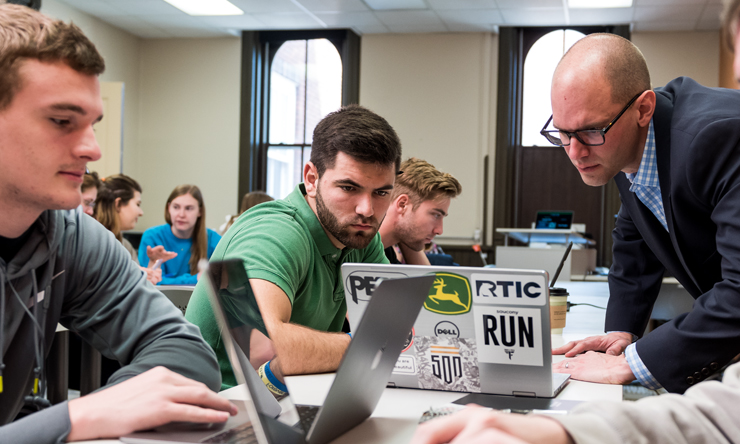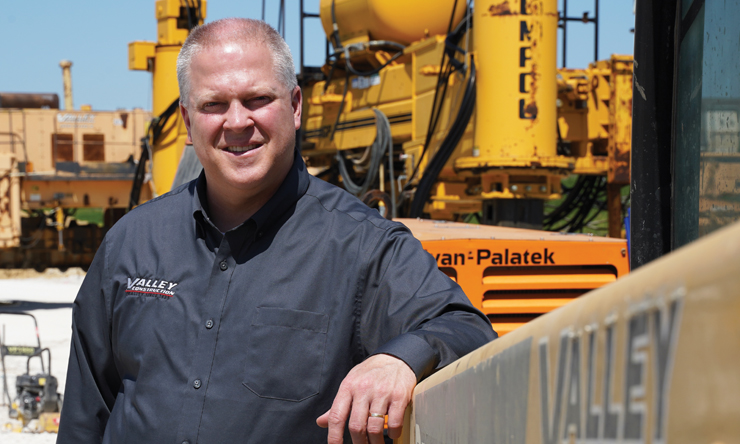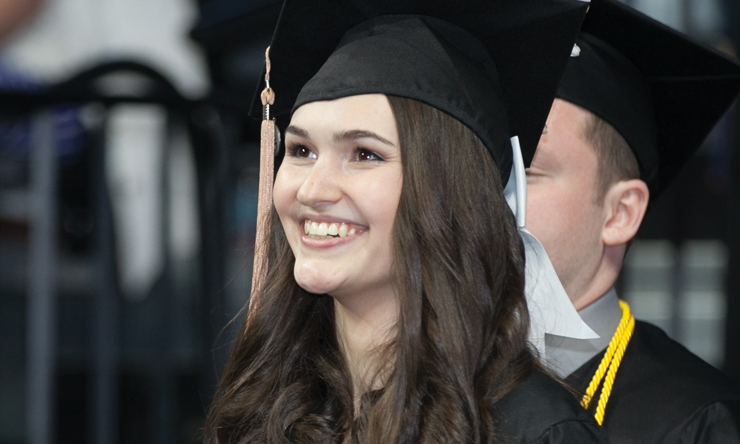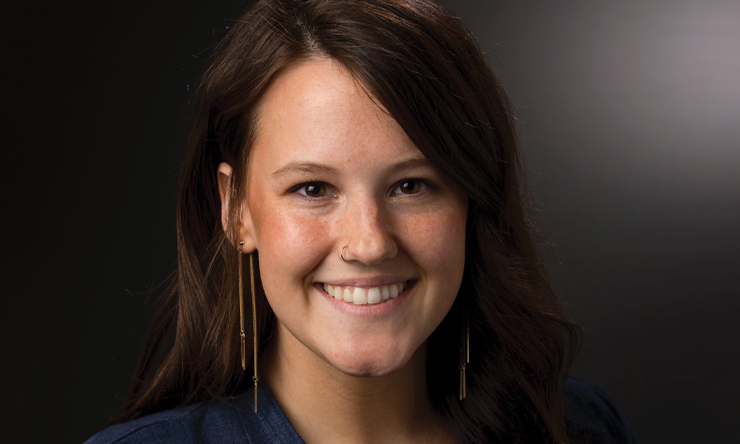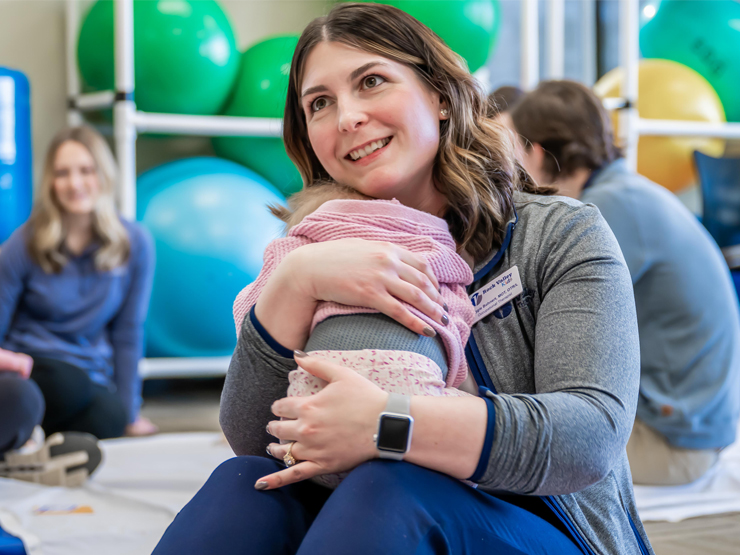A Better Way Of Doing And Teaching Business
By Craig DeVrieze '16 MOL
You can't turn on the television these days without encountering a corporate advertiser confessing their well-exposed business transgressions and promising to do better going forward.
For Facebook, Wells Fargo, Uber and more than a few other large American businesses, misbehavior and malfeasance in the workplace have led to "mea culpa" on airwaves.
Surely, there's a better way to do business?
Enter Business for the Greater Good.
This year and into the future, the St. Ambrose University College of Business (COB) will enlist those five words as a curricular focus, a classroom mantra and an overt, overriding organizational theme.
Rob Rouwenhorst, PhD, an assistant professor of marketing, calls Business for the Greater Good, "Our North Star."
Alumni, recent graduates and current students of the college's eight undergraduate majors and four graduate degree programs might argue that St. Ambrose academic programs already teach and promote ethical behavior. Yet, when a committee of COB faculty convened last winter, the group determined curricula throughout the college could more intentionally connect to the university's central mission themes of service, social justice and enriching lives.
"We would like our graduates to feel like they are going off to work in something they feel passionate about," said Allison Ambrose, PhD, professor and chair of the Accounting Department. "We want to get them a little more focused on 'What do you want to do? How do you want to contribute? How can you find more meaning in what you do?' We want our students to think more about their purpose."
The COB will add new components to the Business for the Greater Good (BGG) initiative in the coming years, but first-year students this year will get an early indoctrination. Faculty will offer three New Student Seminar learning communities focused specifically on business practices that look beyond the bottom line and offer rewards that stretch beyond a paycheck.
Second-year business majors, meanwhile, can be challenged by a one-credit-hour elective course on life design taught by Rouwenhorst. Students will be pushed to think more critically about their career choices and how they will enrich lives.
Business for the Greater Good is a cultural thing. We can be more purposeful in emphasizing it. This idea should infiltrate everything we do.
Allison Ambrose
"This course will ask them to think about what kind of life they want and what kind of impact they want to have," Rouwenhorst said.
Although they see the value in a more structured approach, St. Ambrose business graduates say the whole of their SAU experience has encouraged them to think about the greater good all along.
Brian Bassier '91 is a member of the SAU Board of Trustees and chief financial officer for Valley Construction, one of the Quad Cities' largest contractors. He said SAU's foundational grounding in the liberal arts "teaches you to look at things from everyone's perspective and not just your own. Even in business classes, the team approach they often use has you thinking about others and not just your individual grade."
Doing greater good in business, as in most things, begins with the Golden Rule, Bassier noted. "How do you treat your vendors? How do you treat your customers? It's an everyday philosophy you have to stay on top of-treat others as you would want to be treated," he said.
Kathleen Hall, who graduated summa cum laude in May of this year with a degree in accounting and finance, said the campus-wide commitment to service extended through her final semester. In the spring, she and fellow accounting students provided tax preparation through the Volunteer Income Tax Assistance program, helping community members who couldn't otherwise afford such a service.
"Service is so ingrained at St. Ambrose and it has been a huge part of my four years," she said, noting the workplace can offer similar opportunities. "You can help nonprofits, serve on boards. Those are things I see myself doing in the future."
As the COB faculty group studied the concept of Business for the Greater Good, Ambrose said members gained a deeper appreciation for the strong and ethical business practices they and their colleagues already were teaching and promoting in the classroom.
A top-of-mind sampling of existing curricular practices in the COB's undergraduate programs – accounting, business economics, economics, finance, international business, management, marketing, and sales – uncovered more than 20 concrete examples of assignments, case studies and experiential learning opportunities that meet the BGG standard.
Examples include:
• management and marketing classes send teams of students to help small businesses and nonprofits in the neighboring Hilltop Business Association build strategic plans and marketing strategies that can help them grow and keep them viable;
• a sophomore-level marketing course teaches theory and the practice of ethics in marketing and advertising;
• a junior-level management class allows students to supply assistive solutions to people with environmental challenges;
• a senior-level accounting course has students study and manage inventory control for a local foodbank;
• a senior-level management course focuses on a safe-water case study and issues of sustainability.
There also were numerous examples of BGG lessons within COB graduate programs-the Master of Organizational Leadership (MOL), Master of Accounting(MAcc), Master of Business Administration (MBA) and Doctor of Business Administration (DBA). The MOL even offers an elective on servant leadership.
Ambrose said the committee will urge more such coursework in the future and will ask faculty to specifically include BGG-related assignments in their syllabi, and then document learning outcomes.
"Business for the Greater Good is a cultural thing," she said. "We can be more purposeful in emphasizing it. This idea should infiltrate everything we do."
More importantly, the concept should organize everything COB faculty do, Rouwenhorst said.
"It's something we can all tie in with and is something we all value," he noted. "I think this is a way of expressing that and hopefully getting all of our ships moving in a similar direction."
Patrick O'Leary, PhD, an associate professor in the MOL Department, said American business could benefit by adopting its own Business for the Greater Good approaches. And not just by doing right by consumers, but also by tapping into a new generation of workers, like those who come out of St. Ambrose with a real sense of purpose.
"Generally young people, and certainly college graduates, have a deep desire to work in a job that not only makes them a living but also provides a deeper sense of purpose," O'Leary said. "It's unfortunate some companies don't get that. But I think if we double down on that and embed that purpose in our courses, we can do something to help that along."
Second-year marketing major Brandon Albrecht is eager to learn as much as possible about Business for the Greater Good.
"I am really excited to be a student at St. Ambrose and know that I'm not just learning how to sell a product," he said. "I'm learning how to work with people, how to market and how to be an agent for the greater good. That theme is just perfect."
Share This Story

